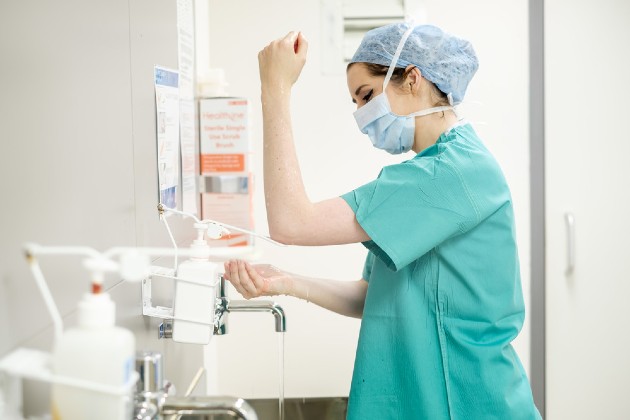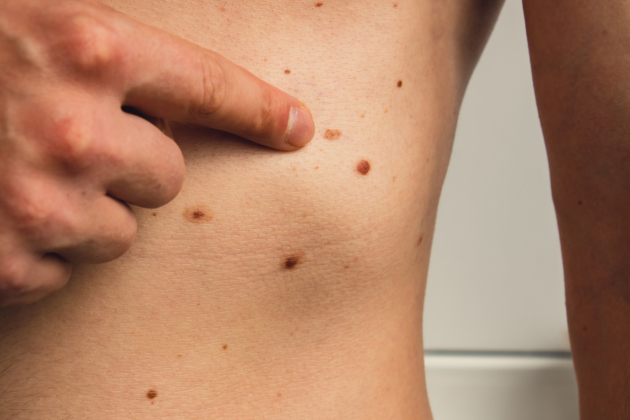Do you work in perioperative care? If the answer is no, you might want to reconsider. About 10 million patients undergo surgery annually in the UK and according to the RCN Perioperative Nursing Forum, the “periop” period extends far beyond the time just before, during and soon after the surgical procedure. In fact, says Angeline Price, a member of the forum’s steering committee, nursing staff in all sorts of areas have a part to play in the perioperative pathway.
The COVID-19 pandemic has played havoc with waiting times for surgery. This means that in England alone, there are now nearly six million people on the waiting list for non-urgent treatment such as hip replacement or cataract operations.
COVID has had a massive impact in terms of surgery being cancelled
The government’s plan to address this includes setting up surgical hubs dedicated to planned elective surgeries, with the aim of fast-tracking operations to see patients more likely to go home on the same day.
Angeline says a key role for nursing staff working in areas beyond those traditionally thought of as perioperative is ensuring those patients remain fit enough for surgery when it is eventually scheduled. “COVID has had a massive impact in terms of surgery being cancelled,” she says. “The long waits, particularly for older people, mean patients become deconditioned as a result.”
Surgery recovery
Equally important in terms of perioperative care are the days and weeks after surgery, when patients are recovering on a ward and, later, at home. “So prehabilitation and rehabilitation occur across a wide range of settings, including the community,” says Angeline. “These parts of the perioperative journey involve holistic assessment of the person’s needs, and how patients can be empowered to make decisions and be better prepared for the operation and recovery period.”
From the time the patient is referred for surgery until full recovery afterwards, fundamental aspects of good nursing care come into play, including thorough assessment, and patient education and empowerment.

“All nurses who have any contact with patients on this journey should be aware of the value of their input,” Angeline says. “Perioperative nursing extends much wider than just the time of the operation.
“This is also an exciting time for nursing associates, especially in the theatre environment. Work is underway to define competency frameworks for this expanding group of clinicians and highlight the benefits that this role can bring towards improving patient care as part of the wider team.”
Make every contact count
The Centre for Perioperative Care (CPOC) is a partnership between various patient, public and professional stakeholders, including the RCN, and aims to improve the quality of perioperative care.
CPOC guidelines on various conditions, such as frailty, cancer, cystic fibrosis and diabetes, support the view that perioperative care is wider than might be assumed.
If we don’t get our bit right, it doesn’t matter how good the surgeon is, the patient is not going to get better
The guideline on frailty, for example, highlights the potential impact of inadequate integration between primary and secondary care. If potential complications related to frailty are not identified well in advance of elective surgery, recovery can be impeded. Therefore, says the guideline, primary care teams should “make every contact count” and regard each consultation with a patient awaiting surgery as a “teachable moment” – a chance to suggest lifestyle changes with proven benefits.
Case studies on the CPOC website describe how fresh thinking about the perioperative pathway can bring significant outcomes. At University Hospital Southampton NHS Foundation Trust, for example, patients requiring colorectal resection for cancer were being referred to the perioperative team too late for adequate prehabilitation.
'We've all got a role to play'
The team worked with clinical nurse specialists and surgeons to identify a point earlier in the pathway when patients could be referred, even if diagnosis was not yet confirmed. As a result, patients had an extra two weeks of prehab, and although it was initially thought they may find it difficult to prepare for an operation without a confirmed diagnosis, in fact none reported this to be a problem.
In the past, says Angeline, she would never have considered herself a periop nurse and certainly not one with an influential position within the Perioperative Forum. An advanced clinical practitioner in ageing and complex medicine, she says her background is “all medical”. But she developed an interest in older people undergoing surgery and has become a specialist in emergency laparotomy. Now she is passionate about increasing awareness of the perioperative care needs of patients, particularly frail older adults.

“We’ve all got a role to play in helping the person navigate the perioperative pathway,” she says. “The operation itself may only take a few hours, but for the nurses looking after that patient, there are many, many hours before and after.
“We’re a huge part of what happens during that journey and if we don’t get our bit right, it doesn’t matter how good the surgeon is, the patient is not going to get better.”
Perioperative care: getting it right
When perioperative care fails, the price can be high. There’s a financial burden, of course. Recovery will be delayed and patients may have to remain in hospital longer or be readmitted, so care costs rise.
But the personal cost to the individual is also high. If recovery is poor, patients may regret their decision to go through with the operation and experience depression, guilt or anger as a result, Angeline says.
Then if mobility is affected or they experience post-operative pain, they can end up worse off than if they had opted not to have the operation. “That impacts quality of life and their ability to remain an active member of society.”
She adds: “In the worst-case scenario, poor recovery, or lack of proper optimisation and advice pre-operatively, can result in complications that may ultimately lead to death.”
By contrast, thorough holistic assessment of all parts of a patient’s perioperative journey can identify how the person can be empowered to make decisions and be better prepared for the operation and recovery period.
“In particular,” says Angeline, “ensuring they have access to lifestyle advice and support with mobility, exercise, nutrition and mood, and ensuring they have an opportunity to discuss their preferences for their care.”
As she suggests, those preferences may ultimately involve deciding not to undergo surgery or exploring other options if the risk of complications seems too high.
Perioperative care nursing is dynamic and evolving
RCN Professional Lead for Critical Care Suman Shrestha adds: “Perioperative care nursing is dynamic and evolving to meet the changing needs of our patients. Advanced nursing practice has allowed nurses to expand their boundaries across many specialties and the perioperative care setting is no exception.
“Perioperative care nurses have opportunities to develop their career not only through traditional ways in clinical practice and management but also through academia, research, education, working in the commercial sector and advanced clinical practice.
“The RCN is committed to working with our members and partners to lead and support the development of perioperative care nursing, so it is fit for our patients today and for the future.”








